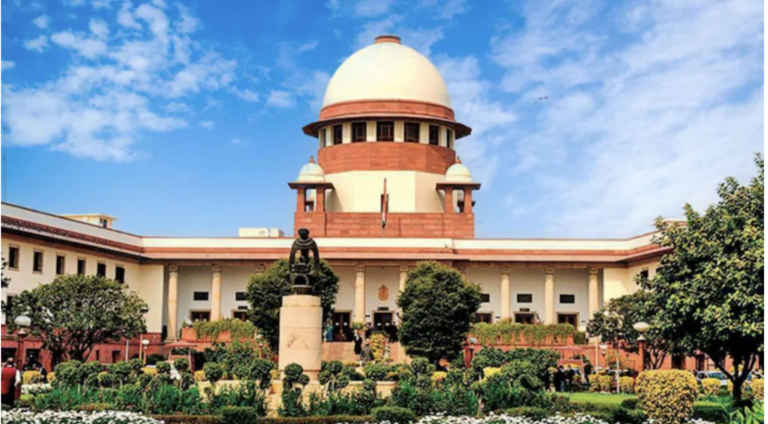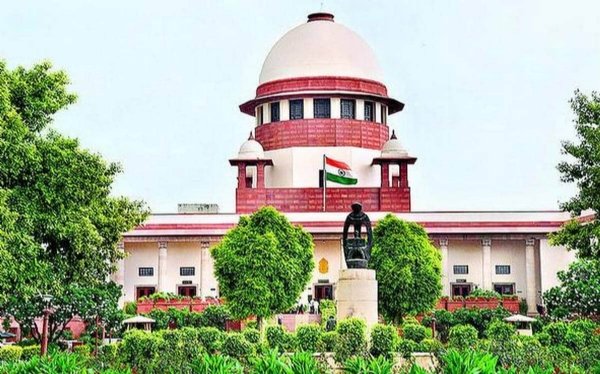[Breaking] Supreme Court Issues Strong Strictures Against High Court Judge for Gross Misconduct, Sets Aside Order Based on CCTV Footage.[Ratilal Parmar Vs. State 2024 INSC 801]

The Indian Bar Association and the majority of advocates across the country have welcomed this landmark judgment as a significant shift towards accountability in the judiciary. They see it as the beginning of the end for corrupt and dishonest judges and a strong step towards protecting honest judges who uphold the principles of justice. Legal professionals believe that this move is crucial to ensuring that the judiciary remains a pillar of integrity, thereby restoring public trust in the legal system.
This judgment is seen as a significant setback for judges like Justice Revathi Mohite Dere, against whom a Public Interest Litigation (PIL) seeking criminal prosecution is pending in the High Court. The PIL accuses Justice Dere of forgery of court records to grant bail to influential individuals, such as Smt. Chanda Kochhar. The ruling serves as a reminder that no judge is above the law, and it reinforces the judiciary’s commitment to holding judges accountable for misconduct, regardless of their position or influence.
New Delhi, October 21, 2024: In a significant ruling, the Supreme Court delivered a judgment in the case of Ratilal Parmar Vs. State 2024 INSC 801, taking a strong stance against misconduct by a High Court judge. The Supreme Court’s anger arose after examining CCTV footage of a High Court hearing, which revealed inappropriate behavior during the proceedings.
The Supreme Court described the conduct as “arbitrary, abrupt, and betraying the trust of the citizen,” and took strict measures to uphold the sanctity of the judicial process, signaling a zero-tolerance policy towards judicial misconduct and corruption. The judgment included strong remarks, emphasizing the Court’s frustration over persistent neglect of established legal standards.
Harsh Strictures Passed by the Supreme Court:
“We must note with regret that the counsel provided through various judicial pronouncements, including the one referred to aforesaid, appears to have been ignored. The delay in delivering judgments has been observed as a violation of Article 21 of the Constitution.
We are constrained to pen down a more detailed order due to a number of similar orders that have come to our notice recently, prompting us to send a reminder to the High Courts.
We are surprised, not a little, that the strong reminders issued by this Court over time have had little effect on the High Courts in the country, with decisions binding under Article 141 of the Constitution being persistently ignored. This has been stressed time and again over the years, and we feel pained to observe that neglect, omission, or refusal to abide by binding precedents bodes ill for the health of the system. Not only does it amount to disservice to the institution of the judiciary, but it also affects the administration of justice. For a learned Judge to deviate from established standards would be to betray the trust reposed in him by the nation. We sincerely hope that Judges of the High Courts, while being cautious and committed, will uphold their oath of office and remain dedicated to serving the litigants so that similar cases do not arise in the future.”
The case involved a civil appeal arising from a judgment and order dated 1st March 2023, with the Supreme Court finding that the High Court of Gujarat at Ahmedabad had egregiously breached the law. The Supreme Court ordered a report from the Registrar General to verify the appellant’s claim that the reasoned order dated 1st March 2023 was communicated to him only on 30th April 2024. The Registrar General’s report confirmed the appellant’s allegation as substantially correct.
The Supreme Court remarked on the heightened attention towards court proceedings, especially with the growing interest on social media. It noted that society expects every High Court Judge to embody rectitude, integrity, moral excellence, and professionalism. Instances such as this, considered an aberration, tarnish the judiciary’s reputation and cast the entire system in a negative light.
The Court concluded by citing Lord Hewart’s famous words in R. vs Sussex JJ., ex p McCarthy: “Justice must not only be done, but must also be seen to be done.” The Supreme Court ordered the impugned order dated 1st March 2023 to be set aside.”
Chief Justice D.Y. Chandrachud’s Commitment to Judicial Discipline: Chief Justice D.Y. Chandrachud, reaffirming his commitment to high judicial standards, emphasized the need for discipline in the judiciary. He warned that misconduct could severely harm the reputation of the legal system. The judgment, led by Justice Dipankar Dutta, serves as a stern warning to judges, making it clear that unethical behavior will not be tolerated.
The Indian Bar Association’s Role in Fighting Judicial Corruption: Advocate Nilesh Ojha, the National President of the Indian Bar Association, along with other like-minded advocates, has been fighting extensively against corruption in the judiciary for over 20 years. Their efforts include filing complaints, petitions, and cases against corrupt judges, writing blogs, and publishing books that provide valuable guidance to the public, advocates, and judges on how to take action against corrupt practices while protecting honest judges. These initiatives aim to promote judicial integrity and accountability within the legal system.
The prominent names of advocates in continuous fight against Judicial corruption are :
(i) Adv. Prashant Bhushan
(ii) Adv. Dushyant Dave
(iii) Adv. Ghanshyam Upadhyay
(iv) Adv. Ishwarlal Agarwal
(v) Adv. Vivek Ramteke
(vi) Adv. Vijay Kurle
(vii) Adv. Subhash Jha
(viii) Adv. Yashwant Shenoy
Past Cases of Judicial Misconduct: There have been numerous instances where judges accused of corruption or misconduct faced suspension, dismissal, or prosecution. The Indian Bar Association provides resources on its website, including legal cases, procedures for taking action against dishonest judges, and templates for filing complaints to promote transparency.
For example, in Muzaffar Husain Vs. State of Uttar Pradesh (2022), the Supreme Court upheld the dismissal of a judge for showing undue favor to a party, stating that such behavior, even if not financially motivated, represents the worst kind of judicial dishonesty. Similarly, in Shrirang Waghmare Vs. State of Maharashtra (2019), a judge was dismissed for issuing orders influenced by an advocate, with the Court noting that “gratification” extends beyond money to include power or personal relationships.
Upholding Standards for All: Judges are public servants, and their conduct, both in and outside the courtroom, must reflect the highest standards of integrity. In National Human Rights Commission Vs. State (2009), the Supreme Court ruled that failing to provide a fair hearing violates due process. Cases such as Zahira Habibullah Sheikh v. State of Gujarat (2006) emphasize that the failure of courts to perform their role undermines public confidence in the justice system.
Consequences of Ignoring Precedents: When judges fail to follow established legal precedents, it leads to confusion and undermines the law. In Baradakanta Misra v. Bhimsen Dixit (1973), the Supreme Court observed that deliberately ignoring precedents constitutes contempt and erodes respect for the judiciary.


